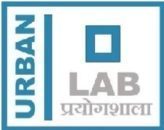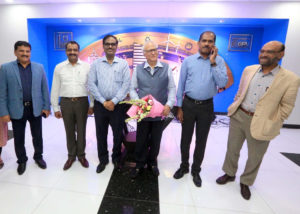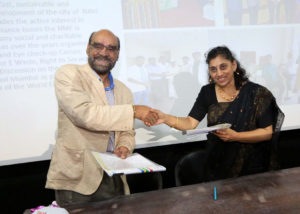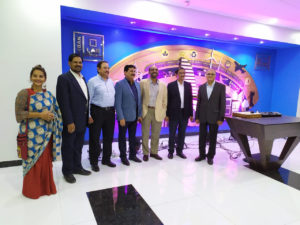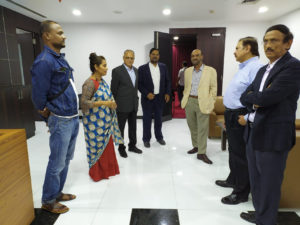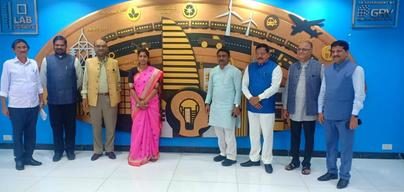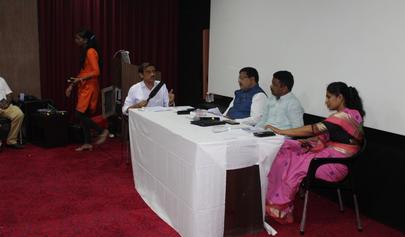Applying Thought to Action
Urban Lab : Definition
It is user-centric, open thinking platform for stake holders and eminent persons to discuss and discover new ways based on user co-creation approach integrating research and practice, for application to real life communities and settings

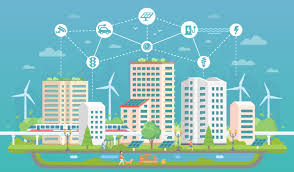
Urban Lab : Mission
Provide a forum for collective efforts by stakeholders to identify, research & analyse, prioritise and drive the issues and actions for better urbanisation
Urban Lab : The Launch
Launch Ceremony
URBAN LAB INDIAis launched on 5th July 2019 at a simple ceremony at its location – Tower No. 4, 6th Floor, CBD Belapur, Navi Mumbai, India. Municipal Commissioners of Navi Mumbai and Panvel Municipal Corporations with over 40 Urbanists attended. URBAN LAB is anchored by GRV Realinfra Consultants Pvt Ltd.
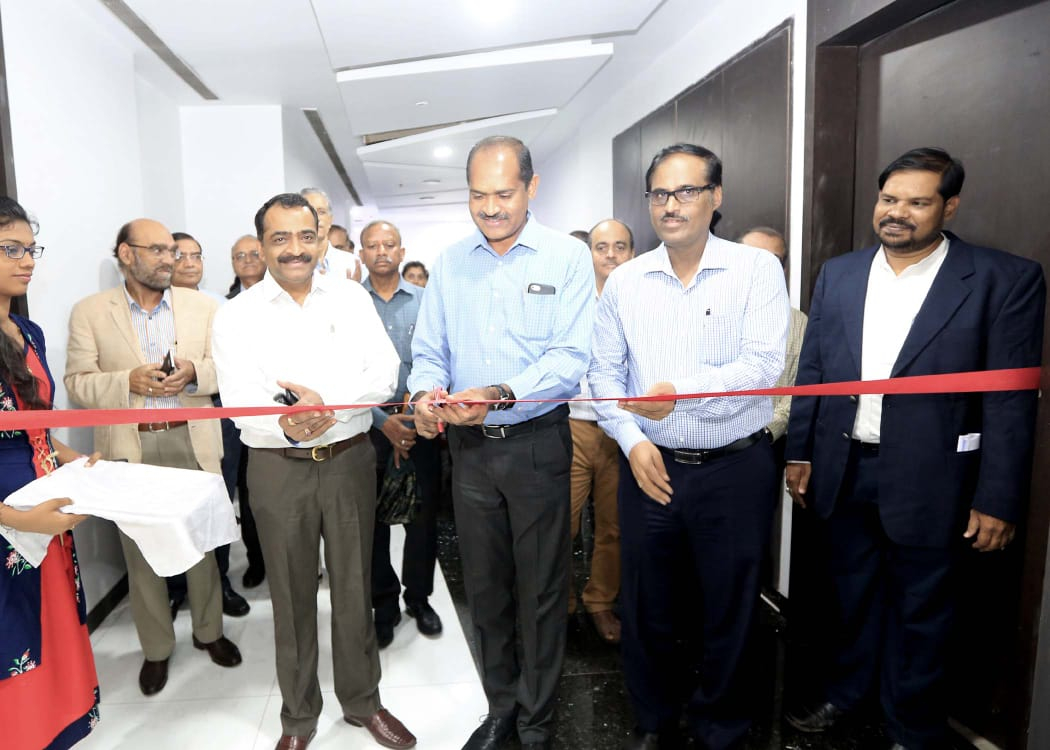
MOUs Signed on Launch Day
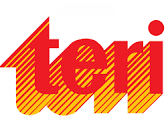
MOU with TERI
MOU WITH THE ENERGY AND RESOURCES INSTITUTE (TERI): To produce, share and disseminate knowledge on various aspects of sustainable urbanisation - including optimal use of the natural resources, identification of skill gaps in the areas of renewable energy and green buildings
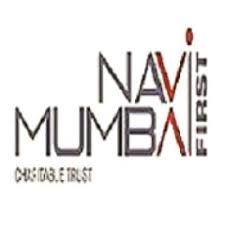
MOU with Navi Mumbai First
To have open dialogue with stakeholders and contribute in the areas of urban governance covering sustainability, mobility, and smart solutions. Particularly focus on the aspect of inclusivity by encouraging equitable access to the urban services by all the citizens.
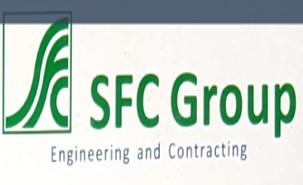
MOU with SFC
MOU WITH SFC ENVIRONMENTAL TECHNOLOGIES LTD. to assess new technologies in areas of Sewerage Treatment and Solid Waste Management. Selection of appropriate and efficient technologies in these sectors and adequate skilling are need of hour. Will generate and share knowledge in this important sector.

MOU with LEENA POWERTECH
MOU WITH LEENA POWERTECH ENGINEERS (LPTE) TO closely work in the areas of Renewable Energy, Electric mobility and efficeincy gains in the traditional Electricity Distribution segment. Will together identify the skill gaps in the Power Sector and create a network of professionals.
Urbanisation Focus Areas
Housing : From Slums to Status Housing
Housing shortage world wide and more so in India is acute even if we include the large number of housing units in the informal sector. India alone needs about 20 million new housing units by 2022 (PMAY, McKinsey). The extant of the challenge will be more clear when the States complete the mandated houslessness survey. Four pronged approach under the PMAY and Housing For All addresses multiple concerns such as land, financial, rules and regulations and above all the technology. Challenge is to move and move fast from the Shanty Houses in Slums to the Status Housing
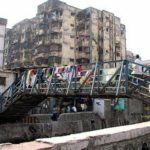
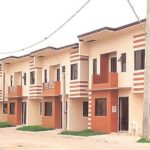
Mobility: Congestion to Convenience
Urban mobility is a great challenge for urbanisation. Growth and innovation and fast spread of the communication technologies have not made any downward impact on the demand for mobility which continues to be an essential input for economic growth. There are three major challenges of the urban mobility – congestion – exacerbated by peaking; Convenience; and Climate. Given the current short term thinking of the Governments all over the world, the reliance on the use of fossil fuels will only further grow. Current pandemic of COVID – 19, will reverse the trend from mass transit back to the individual transport with low occupancy. Urban mobility planners are challenged to find optimum solutions balancing mass and individual transit; design for non-fossil fuel based technology so as to find omtimum solutions to the Three C Challenge of Congestion; Convenience; and Climate.
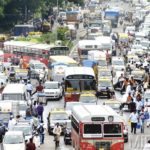
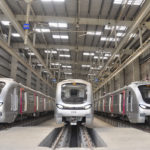
Water Supply: Scarce to Clean, Plenty
Clean water and sanitation is the 6th SDG. While the percentage of persons having access to the clean drinking water has increased from 67% in 1990 to 90% in 2015 – 6.3 billion persons (UN Global Compact, Uni Lever), the challenges continue to be enhancing and conserving the water sources, providing ease of acess to clean water, and ensuring financial sustainability of the water supply schemes. In India the benchmark level of water suppy is 135 LPCD against which the current supply is only 69.25 LPCD. (TERI). On the sanitation side the SDG Perspective is that 2.6 BN people world-wide lack access to basic sanitation services. In urban India only 54% have access to modern sanitation. This led the Govt. of India to launch a massive ‘Swachch Bharat Abhyan (Clean India Mission). For the 4041 statutory towns in India a sub mission called SBM -U was launched with specific targets for IHHT – 6.64 Mn; CTS – 0.25 Mn.; PTS – 0.26 Mn. These targets have been acheived as on the concluding date of the SBM i:e 2nd October 2019. After this initial phase the second one is of sustaining the standards obtained.
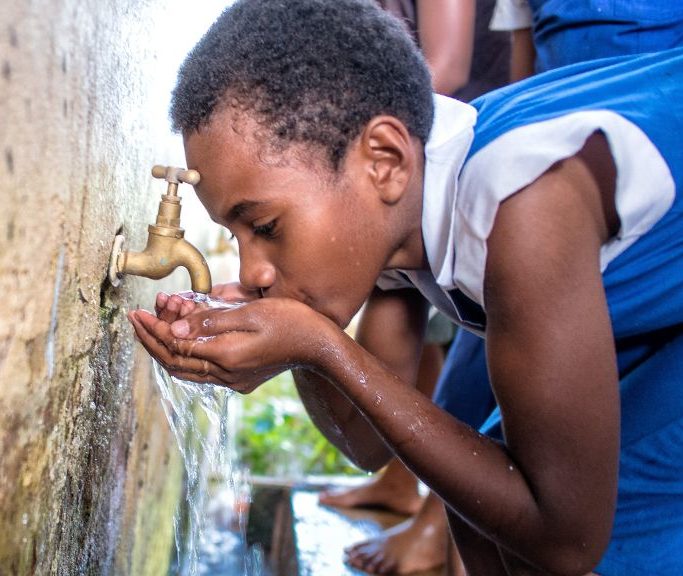

Power: From Juggad to Systematic
Stable and reliable power is crucial to sustaining growth of urbanisation in India. Increasing number of households and concentration of economic activity is estimated to cause 5.1 to 5.8 % CAGR in power demand between 2015-30. (Brookings Institute, 2018). While meeting this demand at the generation point and its transmission that fall in the State’s and Large Private Sector entities will not be a major problem for the cities, the challenge will be in creation of sound and reliable distribution network – which at present is more juggad based than technology based. Use of local generation and consumption as in case of Rooftop Solar Panel, can be a viable solution if adopted on scale. Along with new technology and sources of power, system improvement is also very crucial. An attempt to re-organise the power distribution function around District Energy System like the School Districts in USA can help to achieve more efficiency.


Health Services: Basic to Modern
SDG 3 – Good Health and Wellbeing and the New Urban Agenda adopted at Habitat III held at Quito in October 2016 stresses the equal access to the basic user services like housing, ,health, education, sanitation etc. Health amongst them is the most un-equitable and of poor standards. Shift from the free primary health care services by the State or the Local Bodies to the private sector provided high cost, multi-diagnostics based health care has left millions world over without any health cover. Insurance based health care until and unless funded by State is not workable, due to multiple extra loading on the system. While urban areas have comparatively better health care infrastructurein quality and quantity, the increasing demands on the system make it scarce and of poor quality. Undoubtedly these inadequacies fall in the realm of the local body resources and systems of administration, which in turn point to inadequate financial and human resources. In addition there are hugr organisational issues in the health care delivery systems. UrbanLab India will be one forum to discuss these multi jurisdictional issues and the generic issues of financing the health system and the adequate human resources.
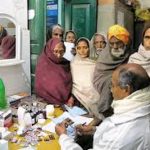

Education: Exclusive to Inclusive
SDG 4 – Quality Education rightly puts the focus on the quality education in an inclusive manner – ‘let no one be left behind’. Traditionally the Local Bodies have been providing the basic primary education. Increasing demand and the constraint on financial resources, along with shifting of priorities of the elected representatives has made primary education the most neglected segment of local governance funding. The vaccum to an extent has been filled by the private provision of education services – further accentuating the exclusivity. A few decades of this neglect of education will perpetuate the ‘elitism’ the bane of India since independence.


Mayor's Meet
URBAN LAB INDIA organised a MEET THE MAYORS event on 20th July 2019 in the midst of incessant rains lashing Mumbai and its surroundings for the last two days. Given this backdrop the main issue posed to the Hon. Mayors of Navi Mumbai Municipal Corporation, Panvel Municipal Corporation and the Hon Chairman of CIDCO – a Special Planning Authoriy, was The Flooding and the City’s Preparedness. Other side of the coin i:e Water Scarcity particularly in the months of May and June was also posed. The Hon. Mayors highlighted the peculiar topography and geomorphology of Mumbai and Navi Mumbai and explained how the Dutch System of storm water management has failed to cope with the high intensity rainfall. The problem is further compounded when high rain fall and and the high tide coincide. Over the time silting of the holding ponds and the dense growth of Mangroves has substantially reduced the holding capacity of the system developed over 40 years back. On the water scarcity front, Hon. Mayor of the Navi Mumbai Municipal Corporation suggested to agressively implement the dual water supply systems right from the point of source of water to the usage point. This will save enough water for potable purposes throughout the year as well provide treated water for non-potable purposes.
The Panel discussion was moderated by Mr A R Jadhav – Group Head Lands and Assets Group of the URBAN LAB. Following is the link to the YouTube clip of the event. If the link does not work, you can watch it at our WhatsApp Group – URBAN LAB https://youtu.be/Qc7rht9rclw
Get in touch!
- info.urbanlabindia@gmail.com; info@urbanlabindia.com
- 91 22 49744415; 91 9820138322
-
6th Floor, Tower No. 4, Belapur Rly. Stn. Complex, CBD Belapur
Navi Mumbai - 400614, Maharashtra, India
